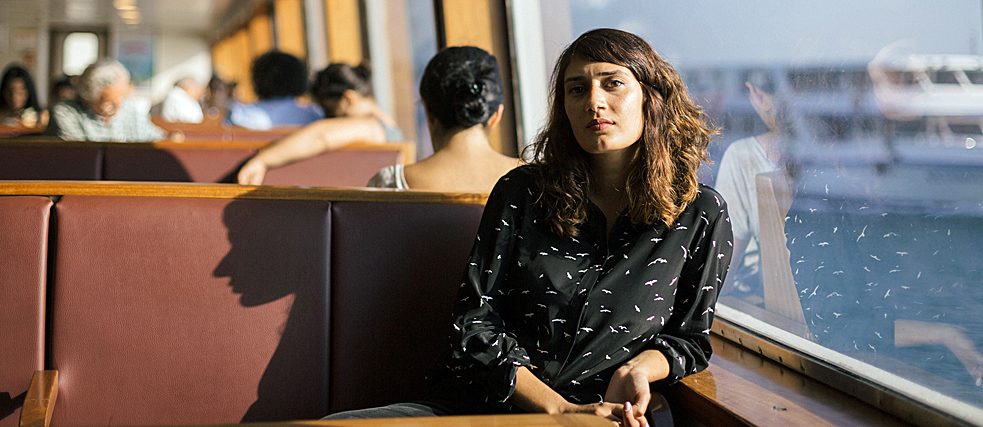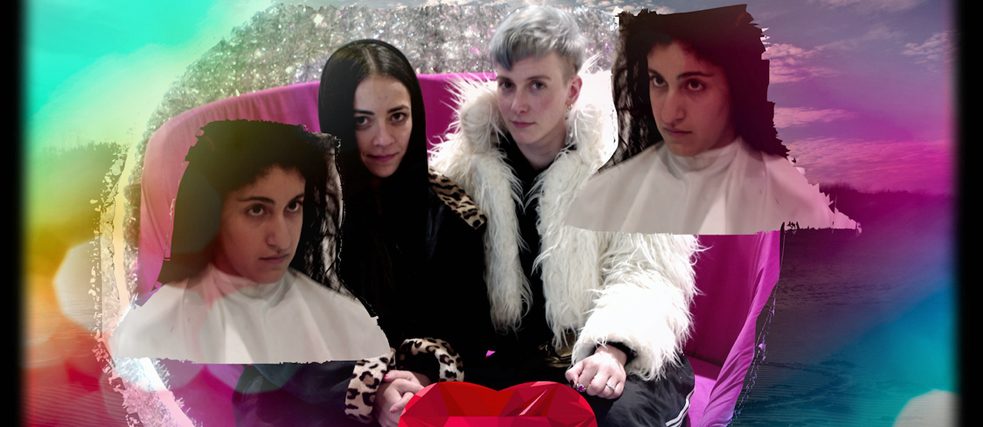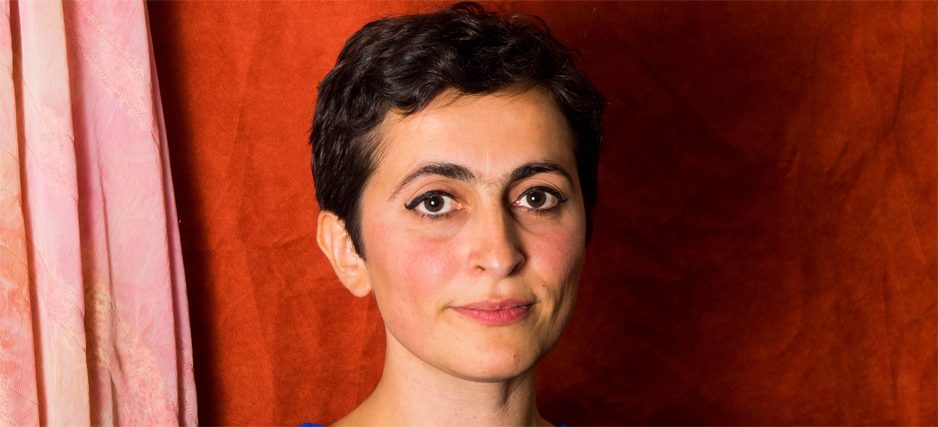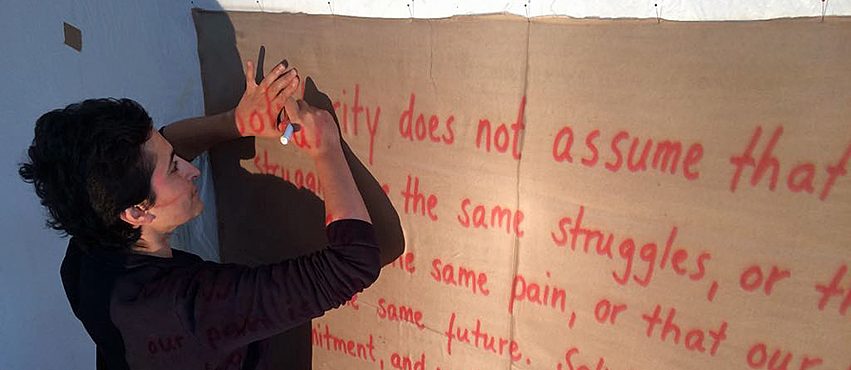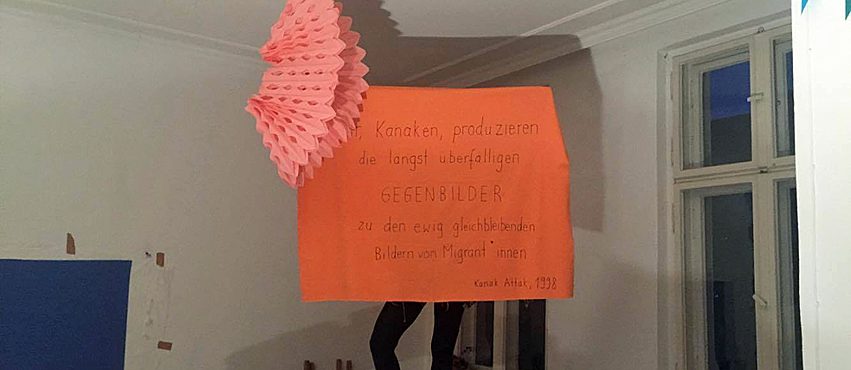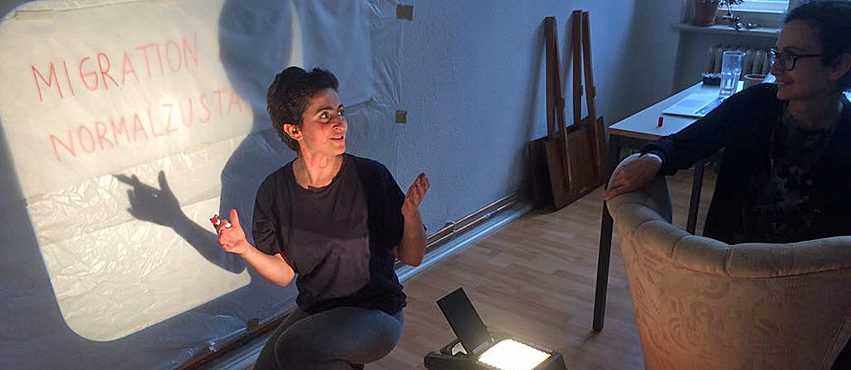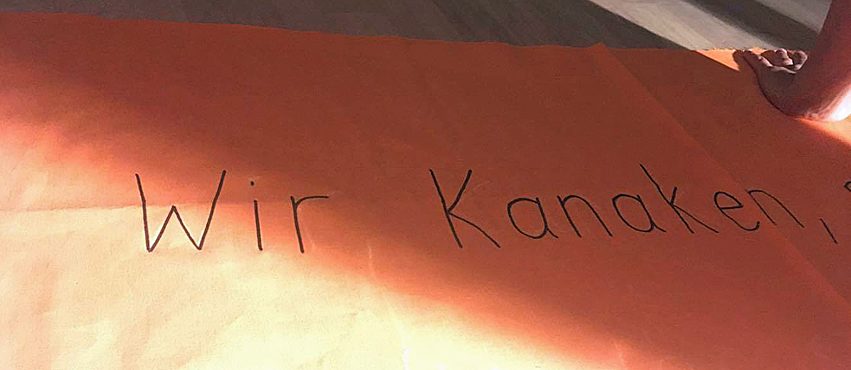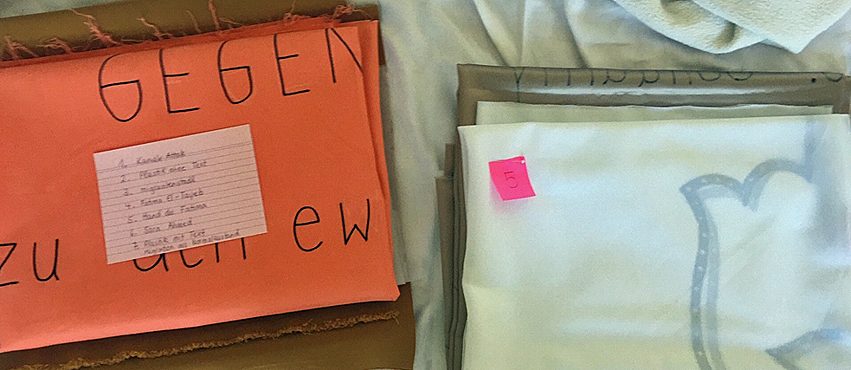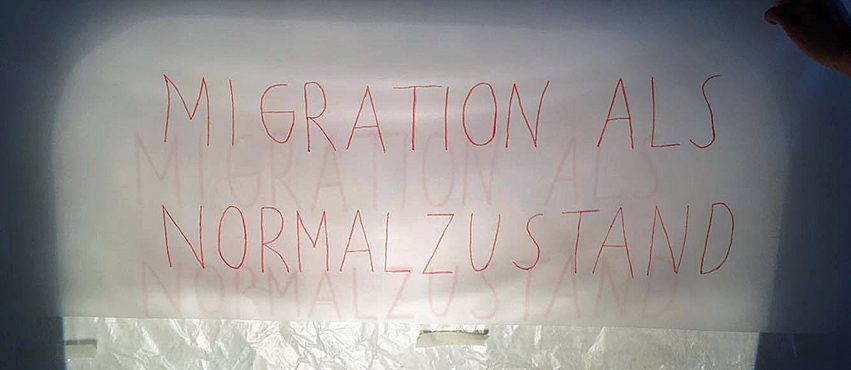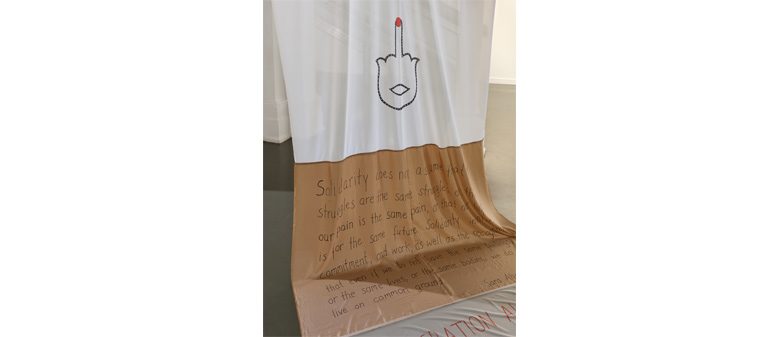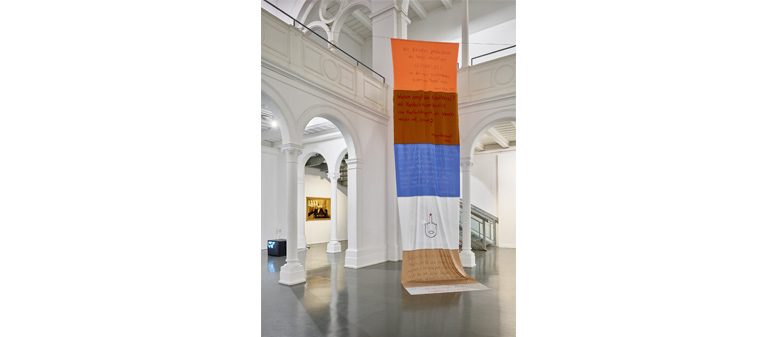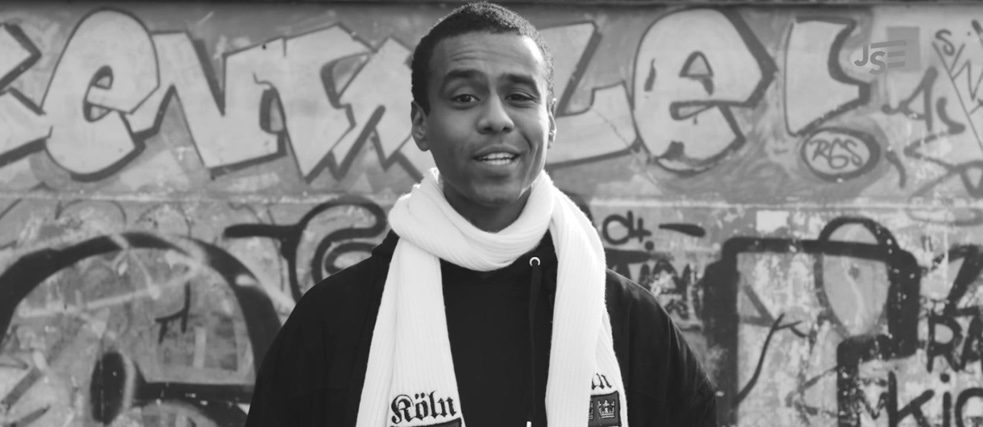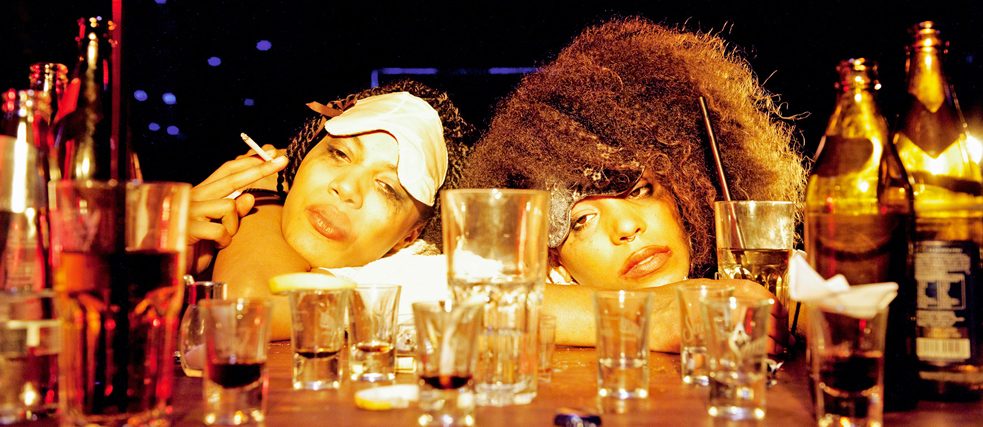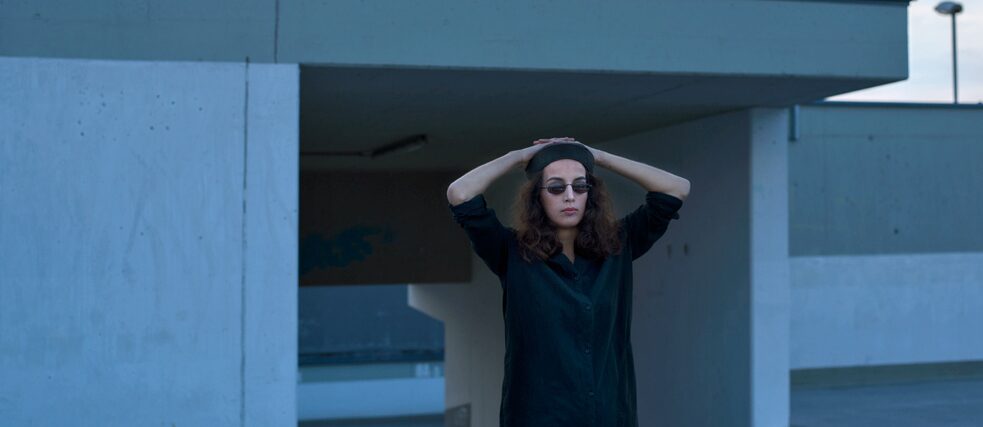Let’s ask a few more questions
This is the way we see migration, racism and feminism
Is everyday racism becoming more and more socially acceptable in Germany? This is a presentation of six artists who, in their novels, videos, theatre plays, music and installations, take a clear position on the issues in the most absurd, astute and badass ways.
Fatma Aydemir: “Ellbogen” (Elbow)
In H&M, we are confronted with the scent of air freshener. We walk straight to the back of the shop where the reduced clothes are to be found. We also have a branch near us in Müller Strasse, but all the good things there are always sold out quickly. There are people queuing up there with their baby buggies early in the morning before the shop even opens. Then they rush in and grab anything that is not striped or orange. In the Mitte district of Berlin things are different. There, at around ten in the morning, there is hardly anything going on and the few women who do not have to work at this particular time of day stroll through the shop with a bored-to death expression on their faces, casually stroking one or two dresses with their fingertips and then walk out of the shop, having bought just a triple pack of socks. They did not take a look at the reduced things at all.
Excerpt from Fatma Aydemir's novel Ellbogen (Elbow)
“White feminists are often unaware of their own privileges. There are, however, very specific boundaries in everyday life that exclude women of colour from certain spaces. The heroine in my novel, Hazal, does not just recognise these boundaries, but tries to tear them down all the time. The passage above is about the economic and social barriers between the two Berlin districts of Mitte and Wedding. The difference between two branches of the same textile company with exactly the same selection of products is depicted, based on the purchasing power and the social background of the customers.”
Technocandy: My Nose is Running – Your Stars Up Close
I don't like any sacrifices
I like it when a country is loved
I love it and love it
I love women and children
Those who love the country, stay there
Those who love the country, collect the rubbish from the hiking paths – loving the environment is loving your country
“The video is the middle part of a three-part trailer series, which we filmed for the first theatre play we did together. The point of departure for Meine Nase läuft – Deine Stars hautnah (My Nose is Running - Your Stars Up Close) is an analysis of the various “new” right-wing movements and the parallels they throw up: for example, the Identitarian Movement, which prides itself in being down-to-earth, traditional and, at the same time, “hip”. When it comes to the image it projects and its rhetorical behaviour, it presents itself, on the one hand, with its actionism as a “rebellious” youth movement, yet, at the same time, attempts to win over the so-called bourgeois middle classes with the aid of image videos.”
“This has brought about a gradual normalisation of right-wing positions, opinions and campaign stunts and has shifted the limits of what people can say and do further and further to the right.”At the same time, during the rehearsal phase of our play in 2015/2016, more and more of what are called Bürgerwehren (vigilante groups) came into being. With their appeals to take the law into one’s own hands, to protect the “Volkskörper” (a Nazi term for the broad public) and to defend the “German woman”, they spread right-wing, racist, anti-Semitic, populist, reactionary hate speeches that then culminate in the violence that blacks, people of colour and Jews are subjected to these days.”
“On the stage, we act out the roles of these everyday racists, who are anything but harmless, despite their bonbon-coloured bomber jackets. As activists on the stage, one of our main concerns is the artistic confrontation with our own impotence in the face of the structural violence which we are confronted with every day on a multidimensional basis. We have broken away from the traditional narrative in which marginalised people are always the victims: the realm of theatre has enabled us to create a utopia in which the right-wing extremists, the so-called “new right-wing middle class”, the racists, yield to our way of thinking in the end.”
Nuray Demir, banner, Installation, 600 x 140 cm, 2017
“In my new work, banner, I combine, on both a substantive and formal level, a broad range of feminist theories and texts, which have been circulating since the 1990s, and have so far received little attention. For my installation, banner, I revived the practice of making and using demonstration banners and transferred it to the field of art or the exhibition space. The texts and quotations refer to demands which are still relevant today and which highlight the need for action in the realm of art and culture. The aesthetic interplay of the heterogeneous texts is, in this respect, also to be understood as a call for the allied merging of individual feminist practices that incorporate racism, classicism, and the demand to recognise migration as a normal state of affairs. By the way, feminism for me always means intersectional feminism.”
Tarik Tesfu: Suspicious Skin Colour
To you of the “I am entitled to say whatever I want” gang, I am the foreigner, the refugee, the blackamoor, the sheep-shagger, the drug dealer, the nig-nog, the Brownie, the alien. And I thought I was just me. Silly me!
“In these times of the AfD & Co, I often get the feeling that many people are at last beginning to notice – Hey, Germany has a racism problem. Racism in Germany has, however, always been there, the only difference is that it is now more ‘socially acceptable’. And how are we going to solve this dilemma? With Femstream! As racism and the “good old” patriarchy can only be kicked off the throne if feminism and mainstream embrace each other and bounce through life, holding hands. Thanks to Femstream, it will soon become clear to the mainstream that all human beings have to be held in high regard. Hooray!”
Thandi Sebe, Amina Eisner: Young, Toxic and Black
OLLE1: When I was younger, I also always used make-up to make me look darker, because that was the look I just had to have.
POLLY: (slowly becoming more and more irritated) That’s what they call blackfacing.
OLLE1: I’m wearing a black pantyhose … Is that then blackfacing of the legs? Blacklegging, so to speak (she laughs)
OLLE2: You meant it positively, as if you were paying tribute to black people. No, that is then not racist.
LAELA: Blackfacing is always racist.
OLLE2: (to Polly) Hey, do you know who you remind me of? Beyoncé! You look just like her!
POLLY: (grateful) Do you really think so?
OLLE2: Yeah, so over the top, don’t you see it?
(zu OLLE1. She agrees)
(zu LAELA) And you look just like Tina Turner.
“This is an important dialogue from our play Young, Toxic and Black, which appears as a flashback in a video that is projected onto the stage. Two white women, who strike up a conversation with the two main characters, Polly and Laela, both black, in the Ladies Room of a club. They try to involve the two of them in a conversation in which they are always reduced to their blackness and the “coolness” that people associate with being black.”
Amina Eisner, born in Berlin in 1990, studied acting and drama at John Moores University in Liverpool. Together with Thandi Sebe, she wrote Young, Toxic and Black, they directed the play together and performed on the stage as Polly and Laela. She is currently living and working in London.
Ebow: Asyl
Asylum is what they all cry
Asylum is what they all sing
Give me a visa
Asylum
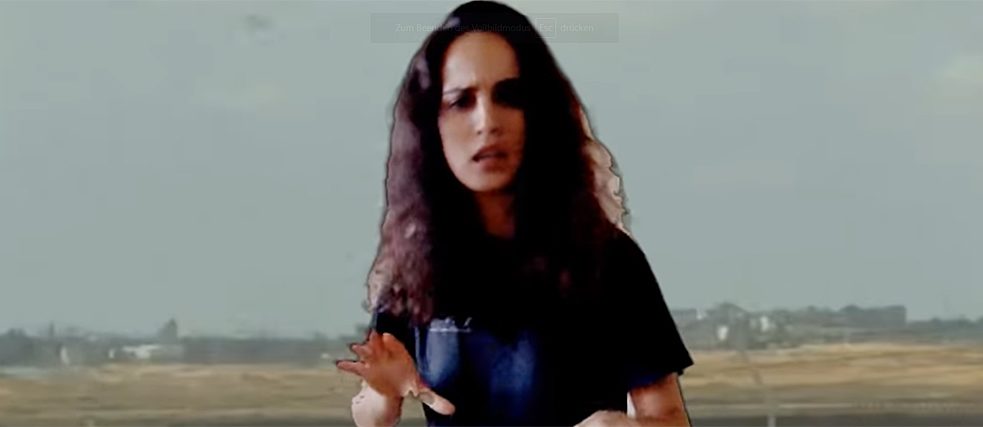
"It is important, especially as a feminist of colour, to express oneself on political issues via one’s art. My motivation for songs such as Asylum is to claim a space for me in which my opinion is just as important as that of all the female journalists, specialists, politicians, etc. My texts do not analyse from the outside, but from the middle inside. Rap music has always been an instrument for me to express my views on different levels, be they provocative or humorous.”
